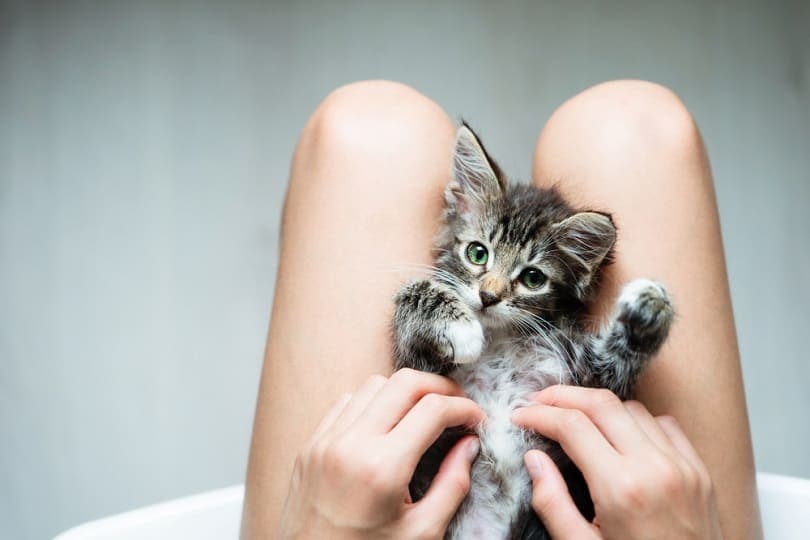Will Lavender Calm Cats? Risks & Safety Guide (Vet-Verified)
By Ashley Bates
Updated on
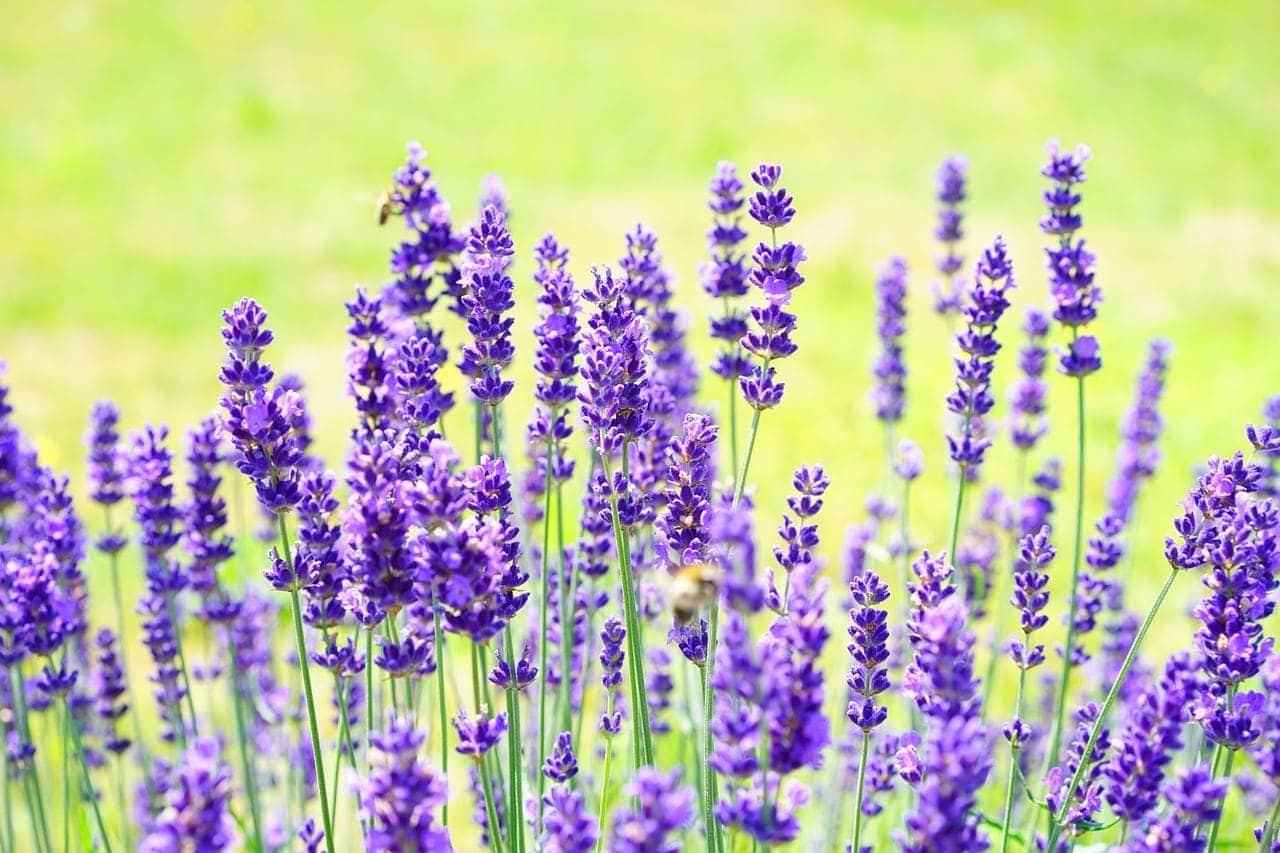
Click to Skip Ahead
You are probably already well familiar with lavender’s calming effects on the body. It’s one of the most common herbal supplements to promote healthy levels of stress and reduce anxiety. There are even lavender shampoos, oils, and other supplements available for pets on the market.
But is lavender a safe option for cats? This topic can be pretty controversial, and it really deserves attention. Lavender can potentially be very dangerous for pets due to its toxicity levels, especially in concentrated portions. It’s crucial to educate yourself before making any purchase, even if it’s explicitly marketed to cats. Let’s explain in more detail.
Lavender: The Good, the Bad & The Ugly
Lavender is a beautiful herbal perennial that will continue to give your garden a burst of aromatic appeal. The flowers are incredibly attractive and are just as useful as they are lovely.
Even if you don’t grow it yourself, you likely have had lavender products in the form of candles, essential oils, and even floral arrangements. Lavender has calming effects for issues like anxiety, stress, and feeling overwhelmed1.
This beautiful plant is marketed for people and pets alike, but most animal experts will warn you against it. The ASPCA classifies lavender as toxic for cats because it contains linalool and linalyl acetate2. Too much lavender is toxic and can even be deadly in some circumstances. It can have extremely detrimental effects on your cat’s system since they don’t have the proper enzymes to break it down. This is especially true if you buy lavender in
So, even though you might see lots of products on the market containing lavender that are targeted toward cats, you should exercise caution. Lavender in all forms can make your cat very sick and create costly vet visits. Here are the dangers of various forms of lavender in the home.
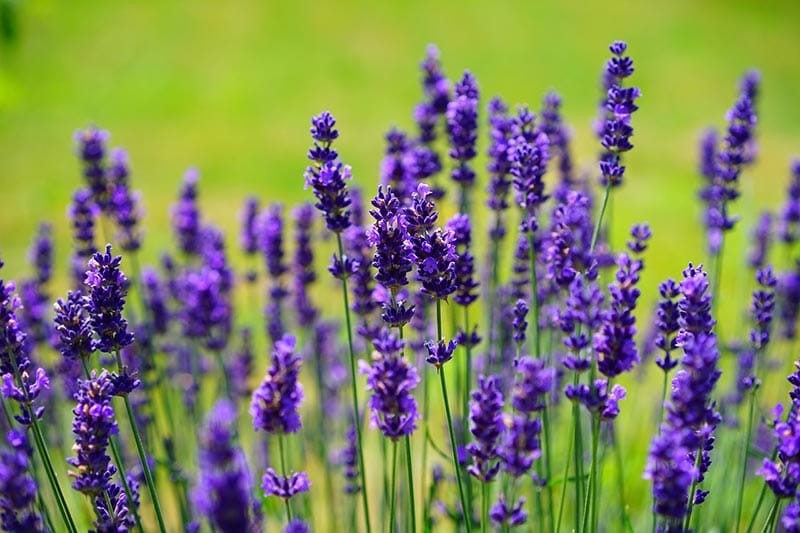
Dangers of Different Forms of Lavender
Lavender Plants
Lavender plants can be extremely toxic to your cat, causing nausea and vomiting. The good news is that due to its strong scent and repugnant taste, it can deter your feline friends. However, if they choose to ingest it, it can have some pretty ugly consequences.
So, if you have any dried lavender plants in your house, make sure that your cat isn’t munching on them for fun, like they like to do with all your other house plants.
Lavender Essential Oils
Lavender essential oils can be the most dangerous because they are absorbed so quickly through the skin. When your cat absorbs a large amount of a toxic substance such as lavender, it can have serious health implications.
Lavender contains specific toxins that your cat’s liver cannot filter out. The enzymes are not able to break down lavender in the system, which can cause an overload of toxicity. According to experts, the oils are by far the most dangerous form of lavender, especially if your cat gets into them unattended.

Lavender Diffusers
It might seem like a diffuser is a cure-all for this situation, but it’s actually the opposite. Not only are cats very sensitive to aerosol sprays in general, but lavender diffusers can also be very dangerous for your cat, especially in the long-term.
If you have a diffuser in the home, you might think that the aromatherapy qualities might reduce your cat’s stress. While the scent of lavender might be able to do this, you also have to consider the output. A diffuser uses a combination of essential oils and water to mist the atmosphere and release the scent.
These very microscopic droplets can get on your cat’s fur. When they start grooming, they lick off the airborne lavender from their coats, which can cause nausea, vomiting, and a general lack of wellness after some time.
While there are no long-term studies done on the effects of oil diffusers on cats, any direct contact can have side effects. Also, constantly breathing in the oil from diffusers can potentially trigger or worsen asthma in cats.
Signs of Lavender Poisoning in Cats
If you feel like your cat has been exposed to too much lavender or you know they’ve had direct contact, you need to take immediate action.
- Drooling
- Nausea
- Vomiting
- Diarrhea
- Neurological changes
- Lack of appetite
- Staggering
- Abnormal heart rate
- Liver failure
Signs can be mild or severe, depending on the amount of exposure.
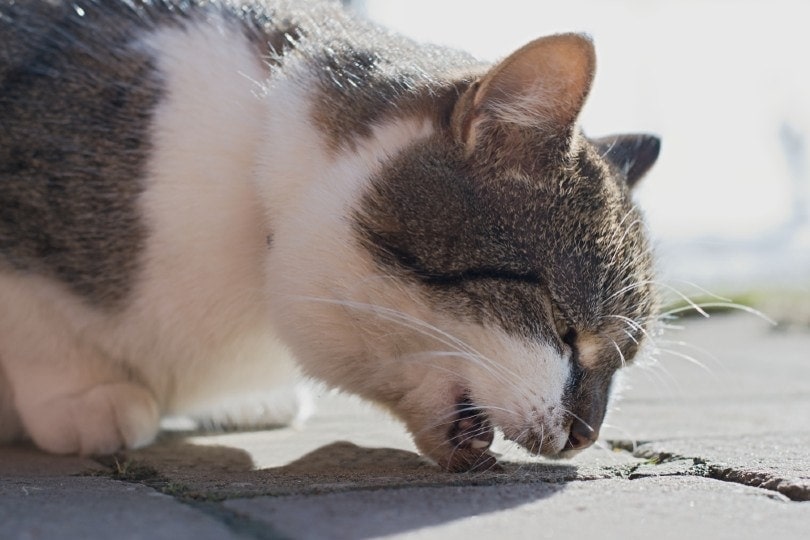
Treatment
Sometimes treatment can be very simple, and you can perform it at home. In more severe cases, it will require veterinary attention and treatment.
If you know your cat was exposed to lavender and is displaying clinical signs, you need to get them to your vet as quickly as possible. You might also want to call the poison control hotline for animals to report the signs. They can advise you from that point on whether your cat needs to see a vet or whether you can help your cat at home—for example, washing it off their fur as soon as possible.
If your cat ingested lavender oil, please seek medical attention for your cat as soon as possible, as this can be a life-threatening situation. If you are aware of the severity, you might know whether you need to take your cat in immediately or not. Don’t mess around or wait, though, since these issues are time-sensitive.
Once your cat is at the vet, they will do a quick examination to see how advanced the toxicity levels are. If they are mild, your vet might prescribe decontamination and supportive methods to treat the issue. However, if the poisoning is severe, they might be monitored at the hospital, including overnight stays.
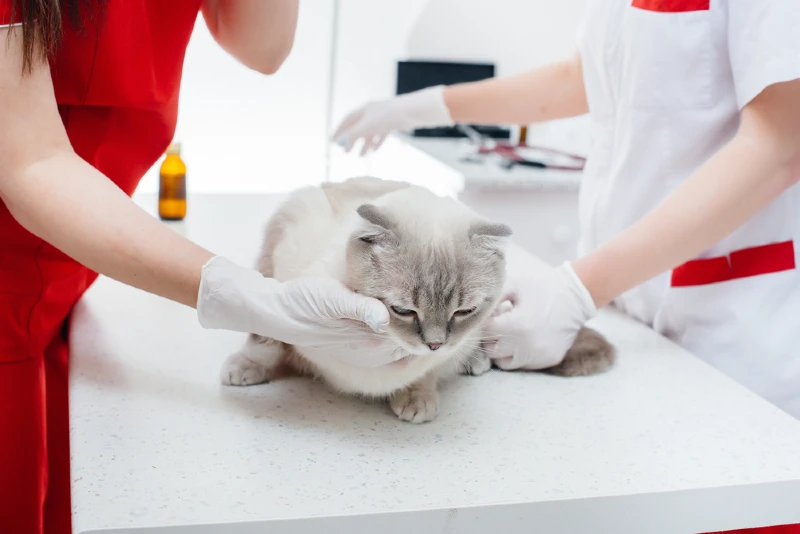
Safe Lavender Products for Cats
Some products on the market containing lavender are targeted at cats. Generally, these products are safe to use with proper instructions.
However, never leave any of these products where your cat can knock them over or come in contact with them without your supervision. All lavender products should be in a safe spot to prevent spills and direct contact.
You can find options on sites like Chewy and Amazon if you want to shop around. You should always buy safe products that will reap the most reward for your kitties. While some people claim that lavender can be calming for pets, it contains toxins, so it must be used correctly, and proper dilution is critical.
If you are looking for a calming product for your cat, we recommend synthetic pheromone diffusers instead. These have been proven to be effective and safe.
Conclusion
So, now you understand that lavender has calming propertiesand that it’s been used in herbal medicine for millennia due to its aromatic effects. However, it can be detrimental and highly toxic to your feline friends.
You can purchase a product specifically designed for cats, but it should always stay out of your cat’s reach anytime they’re not in use. Also, the dosage is vital to get right. Don’t forget to check, double-check, and triple-check the amount you should give your cat before applying it.
If you suspect that your cat is suffering from lavender toxicity, call the poison control hotline or get in touch with your veterinarian immediately.
Featured Image Credit: Hans Braxmeier, Pixabay




